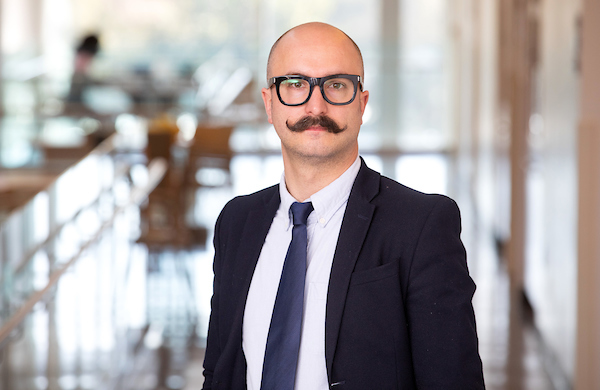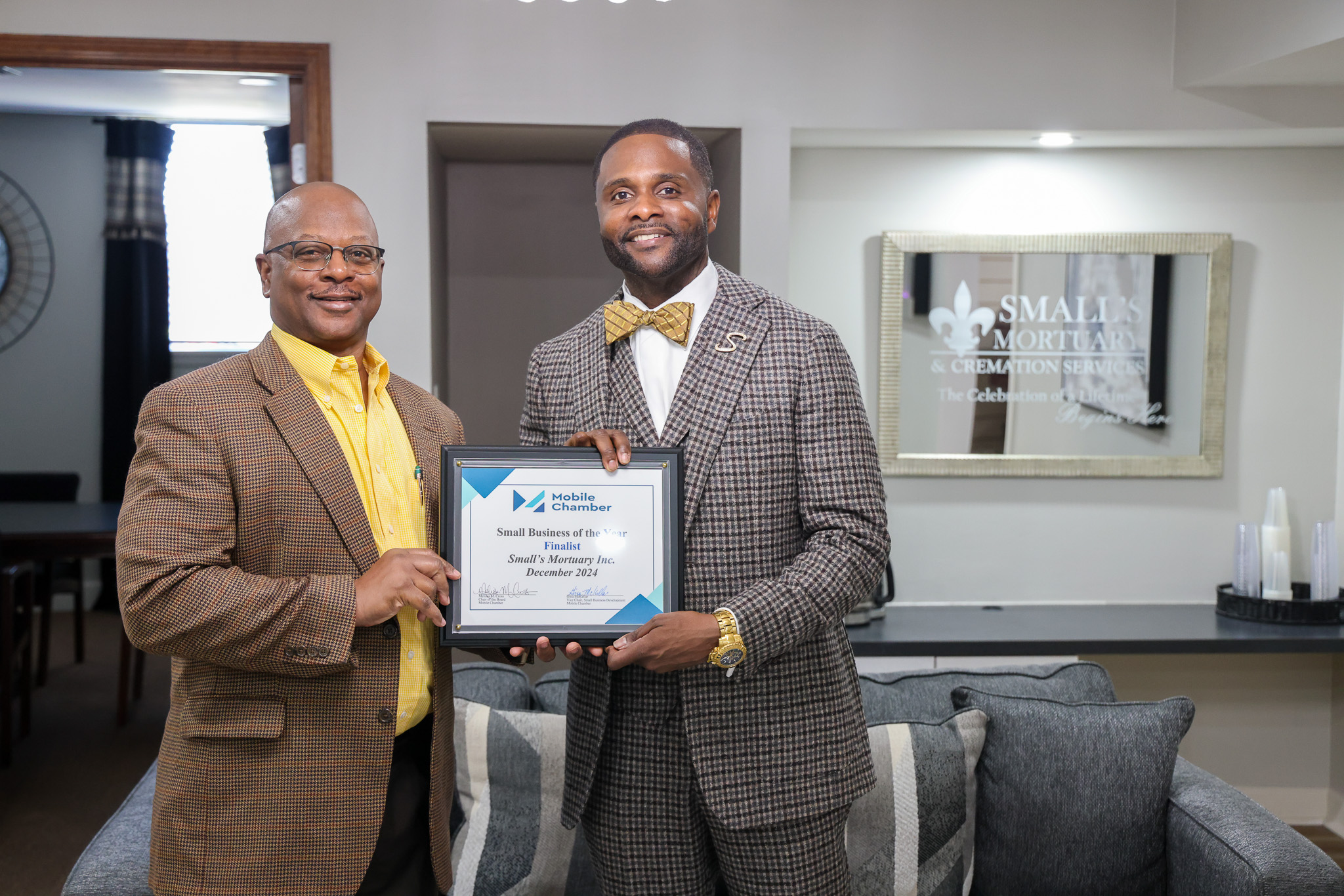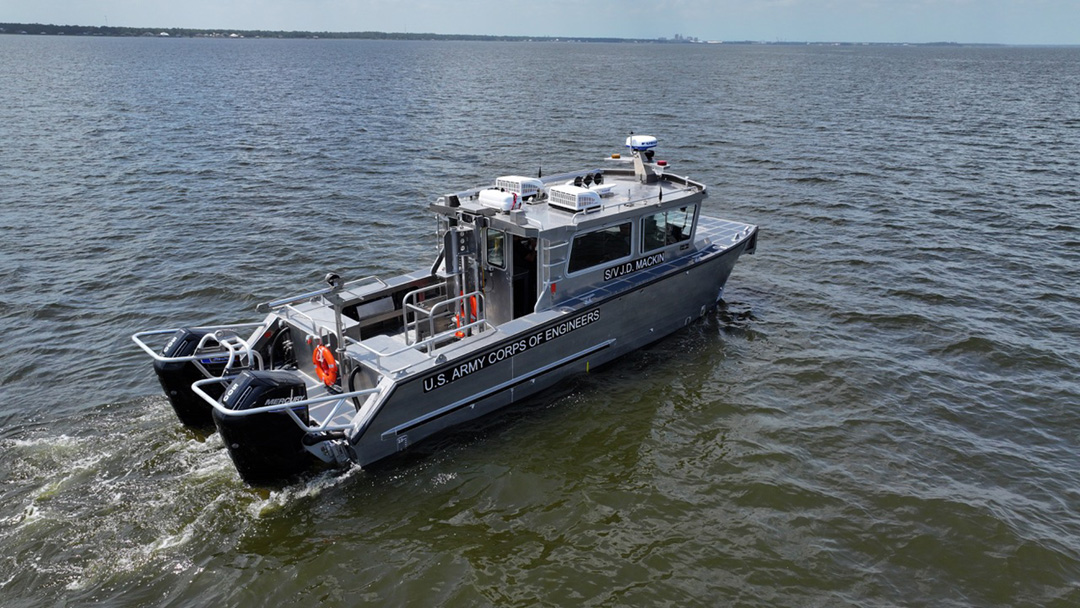USA Health Mitchell Cancer Institute researcher shares new technology at mitochondria conference in Germany
MOBILE, Ala. – Simon Grelet, Ph.D., a cancer researcher at the Mitchell Cancer Institute and assistant professor of biochemistry and molecular biology at the Frederick P. Whiddon College of Medicine, recently delivered a talk at an international conference in Berlin on targeting mitochondria.
Mitochondria are often called the powerhouses of the cell. They are organelles central in cellular respiration, a process that breaks down fuel molecules to produce energy.
Grelet’s discussion focused on the recent development of a new technology that allows for the live reporting and lineage tracing of cell-to-cell transfers of mitochondria. Earlier in 2023, Grelet and his colleagues developed a provisional patent for the technology, which involves labeling cells that have received mitochondria from donor cells.
Grelet’s lab – known as the Cancer Innervation & Neurobiology Laboratory – is based within USA Health’s Mitchell Cancer Institute.
Recently, notes Grelet, the intercellular transfers of mitochondria have become an incredibly hot topic of research: “They consist of a cell-cell exchange of mitochondrial organelles and are observed in various physiological processes, including immune response, tissue regeneration, development, and neuronal activity.” These transfers also play crucial roles in pathological conditions such as infectious diseases, metabolic disorders, cardiovascular and respiratory dysfunction, inflammation, neurodegenerative diseases, and cancer, he said.
“Despite its significance, a comprehensive understanding of the mechanisms underlying this phenomenon, particularly in disease states, remains elusive,” Grelet said, “largely due to a lack of reliable methodologies for tracking the fate of the cells involved.”
To date, technologies that specifically highlight this process do not exist, he said.
Because of that, Grelet’s lab developed a set of genetic reporters for the live illumination of the cells involved in these transfers and the permanent labeling of those cells. This method allows for the screening of the genetic mediators of mitochondria transfers but also to follow the fate of the involved cells in vitro and in vivo, he said.
It remains a relevant topic as the field is emerging, and the exact consequences of this transfer in cell biology are still unclear. The current literature presents various impacts that are based on the biological context.
“Our goal is to help to expand this field of research by enabling the screening of various biological conditions, genetic mediators, or drugs that could influence this process but also isolate the involved cells or follow their fate, in a goal of better understanding the physiological and pathological function of these transfers in health and disease and the clinical relevance of their targeting,” Grelet said.
The World Mitochondria Society’s conference in Berlin was dedicated to mitochondrial biology and how mitochondria could be used or targeted for therapeutic purposes. Gregory Hoover and Olivia Curley, described by Grelet as exceptional research technologists in his lab, “have been deeply involved in this project, and their hard work, dedication, and engagement have been instrumental in bringing the project to the level it is now.”

Stay Connected
Fill out and submit the form below to get regular updates from Mobile Chamber delivered directly to your inbox.






